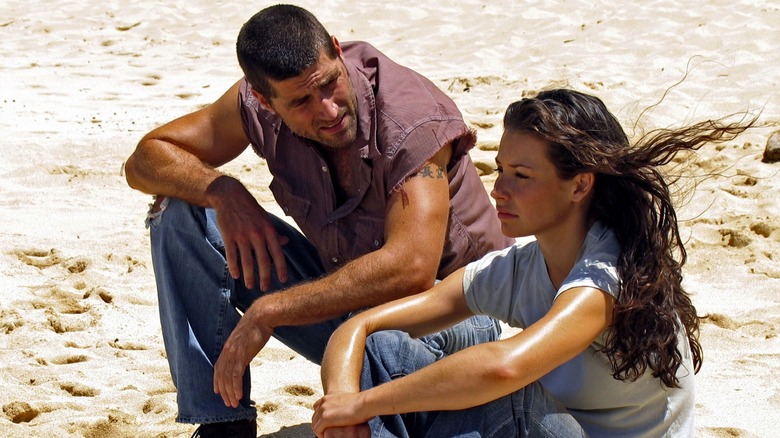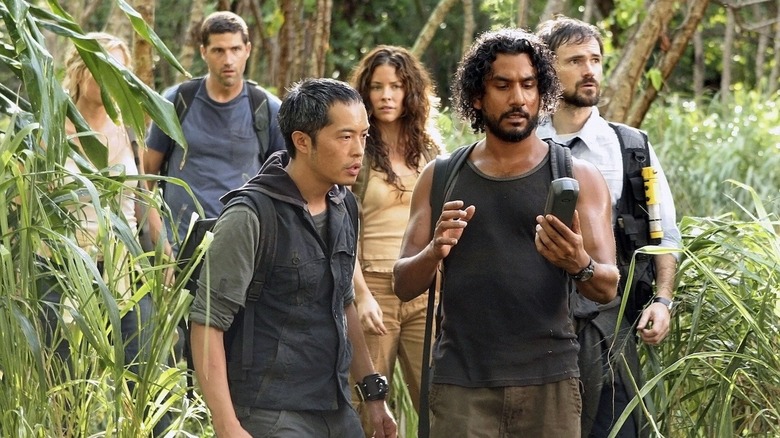Lost: New Behind The Scenes Details Depict A Toxic Work Environment
While the ending of "Lost" still confuses people to this day, the series defined a generation of TV, captivating audiences with the survival story of Oceanic 815. However, newly surfaced information reveals that the work environment wasn't as relaxing as the show's Hawaii filming location, breeding toxicity, racism, and misogyny.
In her new book "Burn It Down," author and Vanity Fair editor Maureen Ryan exposes the behind-the-scenes toxicity of "Lost," recounting stories from many victims of the workplace culture established on the series. Screenwriters Monica Owusu-Breen and Alison Schapker recalled the "Lost" crew treating them like "Tailies," the show's tail-end survivors who were seen as different from the main-cabin survivors. "Everyone was real nice to us for the first few days. And then they wanted us dead," Owusu-Breen said.
Sources also revealed there was an exclusive behind-the-scenes group on "Lost" that used jokes to cover their bullying and inappropriate comments that crossed the line regarding race and gender. Showrunners Damon Lindelof and Carlton Cuse encouraged the behavior, finding many of the jokes funny, and Cuse's arrival cemented the culture on set. "I can only describe it as hazing. It was very much middle school and relentlessly cruel. And I've never heard that much racist commentary in one room in my career," Owusu-Breen recalled, proving there was much more wrong with "Lost" than what audiences saw on screen.
Further proof of Lost's horrendous work environment
Many sources recalled different instances of discrimination on "Lost." Many either came directly from showrunners Damon Lindelof and Carlton Cuse or stemmed from the behind-the-scenes culture they encouraged.
Monica Owusu-Breen recalled that when one "Lost" staffer was adopting an Asian child, she overheard someone comment, "No grandparent wants a slanty-eyed grandchild." When Adewale Akinnuoye-Agbaje's picture was in the writers' room, someone suggested everyone safeguard their wallets "before he steals it." She also overheard another writer use a Yiddish slur about a Black worker while they were riding in a van. Owusu-Breen also points out that many people referred to the only Asian American writer as "Korean" when addressing them.
Another source revealed that writers would ask a woman, "Why don't you take off your top and tell us about it?" when she entered the writers' room carrying an HR binder, while others "joked" about segregating bathrooms to keep the cleaning staff out.
Harold Perrineau, who played Michael, openly left "Lost" because of pay discrimination, which saw white actors getting more screen time and higher salaries than others. Multiple sources told Maureen Ryan that, after Perrineau's departure, Damon Lindelof said, "[he] called me racist, so I fired his a**."
Ryan spoke to Lindelof and Cuse regarding the stories, with both denying saying specific statements. Lindelof admits that he failed as a leader on "Lost," but that the time for him to hold himself accountable has long passed. While "Lost" pushes the idea that our pasts don't define us, Ryan's book gives the victims a voice, urging everyone in Hollywood to work hard to make necessary changes to the industry.

